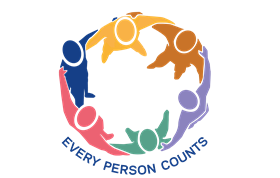Managers who behave like coaches help people solve their own problems rather than telling them what to do

Whenever we’re asked by clients about what makes a good leader, our answer is always the same: the best leaders are those who are true to themselves, but with a superpower. That superpower is the ability to coach.

Coaching is the ultimate people management tool, increasing employee engagement, improving performance and encouraging individual responsibility.
Imagine being asked to drive to a particular destination. We can all plug a postcode into a GPS and follow instructions to get us there. We all do it, and it works. But what happens when the GPS fails, and we haven’t taken the time to learn how to read a map? Quite simply, we get lost. Coaching helps us learn to navigate the route for ourselves instead of relying on someone else for the answer. It is this ability to be self-directed that drives so many of the proven benefits that coaching brings.
But what is coaching?
Coaching is often described as a powerful collaboration between two people designed to move the coachee forward towards a goal. It is results-oriented, future-focused but without judgement. It’s not telling someone the answers, but nor is it therapy.
When delivered effectively, coaching is proven to increase intrinsic motivation, innovation and performance. It also improves retention – key in the current recruitment market. According to consultant McKinsey, when employees find greater intrinsic motivation, they are 32% more committed to their work and 46% more satisfied with their jobs.
The best way to start is by increasing three simple behaviours: active listening, open questioning and building increased rapport
A year‐long action research on coaching in the Swedish construction industry showed that coaching helped a group of site managers significantly improve their communication, made them more self-reflexive and equipped them to consider a broader range of perspectives in their work. The knock-on effect was improved innovation and communication across the projects as well as an increase in engagement. Improved health and safety was the outcome of another study, thanks to an increase in personal responsibility and risk assessment across the site.
So clearly, we need to coach more. But how?
One option is to bring in external coaches. This can be incredibly valuable, but not as a substitute for internal leaders championing a culture of coaching themselves. The best way to start is by increasing three simple behaviours: active listening, open questioning and building increased rapport.
Often in conversation, we wait for our chance to answer instead of stepping back to hear what is really being said. Listening to understand as opposed to listening to respond is a learned skill. But it is one well worth learning. Being actively listened to has been shown to grow trust between a manager and their people, as well as generate space for employees to resolve things on their own. Think of yourself as a sounding board, rather than a Magic 8-Ball. As a manager-coach, you help employees solve their own problems instead of telling them what to do. As well as improving their engagement, your own workload will reduce as they grow in confidence to resolve issues independently.
> Also in this series: How to find the sweet spot for hybrid workers (and everyone else)
Open questioning is another art. Often we fall into the trap of being the problem-solver for direct reports. Instead, ask open questions that lead to the employee finding their own solutions instead of being directed towards yours. Instead of yes/no answers, open-ended questions solicit ideas, drawbacks, potential opportunities, and options from the employee being coached.
As leaders become better at listening and open questioning, rapport will grow. Finding times to connect with your people on a personal level – perhaps a regular development check-in – instead of limiting conversations to current projects, as well as being authentic and genuine yourself, will all help in this regard. Along with increased rapport comes loyalty, engagement and trust. It’s a win-win for all involved.
Natalie Hall and Phanella Fine run , a human capital consultancy focused on culture and leadership
Every Person Counts

We know the industry has no shortage of suggestions for tackling construction’s skills crisis, from reforming apprenticeships, to offering more flexibility, to increasing diversity, to providing better pathways from education to the workplace. Our Every Person Counts coverage aims to provide a place where debates can play out, views be aired and solutions shared on all these topics.
If you have an employment initiative you want to tell us about email us at newsdesk@building.co.uk with the subject line “Every Person Counts”. You can also contact us via Twitter and LinkedIn , please use the hashtag #everypersoncounts. We look forward to hearing your employment stories.
You can find all our Every Person Counts coverage in one place on our website.
And if your organisation has a particularly strong record in this area, you could consider entering the Every Person Counts – People Strategy Award at this year’s .


























No comments yet